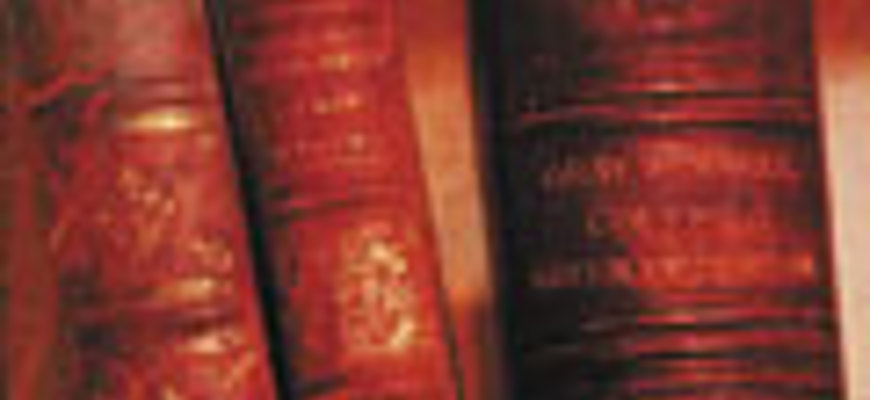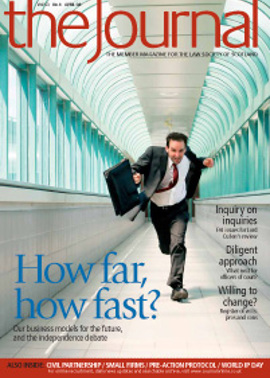Book reviews

Victor Craig & Susan Walker
PUBLISHER: W Green
ISBN: 0 414 01701 6
PRICE: £32
The book covers a wide range of topics from the formation of the contract of employment to termination of employment, and the whole ambit of issues in between. The authors’ aim was not to provide a detailed and critical analysis of employment law, and it is fair to say that such an analysis has been sacrificed in a bid to provide bite-sized snippets on a full spectrum of employment issues.
Five features distinguish this book from similar texts. First, given that the text is intended primarily for students, the layout has been constructed in a user-friendly manner. Large print and easy-to-digest chunks of information mean that the text is easy to follow and holds the reader’s attention.
Secondly, the case summaries dotted throughout the book highlight the salient facts and points to be noted from the judgment. These summaries both break up the text and provide the reader with an easy point of reference.
Furthermore, the book sets out examples of questions for each area of law. The answers provide the reader with logical step-by-step advice to an ever-evolving subject.
Whilst most employment law texts are overwhelmingly thick, this 320 page guide is encouraging when one wishes to read only the key points without trying to meander through the minute detail often offered up by some of the heavyweight texts.
Finally, the authors must be commended for the way in which they deal with the subtle differences that exist between Scottish and English employment law.
On the other hand, there is no glossary covering common employment terms and explaining some of the trickier concepts such as indirect discrimination, which often prove to be extremely helpful to a student trying to negotiate the twisting and turning path of employment law.
In general terms the book is up-to-date, comprehensive and recommendable. Whilst it may not be detailed enough for more experienced practitioners, it is a useful starting place for students and less experienced practitioners (like your reviewer).
Sarah Melaney, Pinsent Masons
THE STRANGE AFFAIR OF MADELEINE SMITH
Douglas MacGowan
PUBLISHER: Mercat Press
ISBN: 1 84183 113 8
PRICE: £9.99
At an excellent show put on by the Faculty of Advocates Library staff, an admittedly unscientific poll recorded more votes for the acquittal than the conviction of Madeleine Smith. This was without taking into account the story that shortly after the trial concluded, a sailor returning from a voyage approached the authorities with the information that, crossing Blythswood Square on his way to embark at the Broomielaw, he had seen the accused with her sometime lover at a time that would have been difficult for her to explain. So she has got away with it again, 150 years on. The anniversary has been marked by a new edition of Douglas MacGowan’s book.
The author has chosen to present his material sequentially, which means we get a great deal of the correspondence between the deceased and the survivor, with editorial comment, before we get to the trial. Some of this makes for rather slow reading, especially as it is now impossible to recapture the degree of shock, if such it was, that these letters induced in readers (prurient or otherwise) to whom they were not addressed.
So far as the trial is concerned, one misses in this account a sense of the extent to which the Dean of Faculty’s speech for the defence went far beyond what would be considered proper today. He certainly invited the jury to accept what he himself purported to believe, which is odd in the light of his much quoted remark, made later, that he would rather have danced with Miss Smith than supped with her. It is clear too from the prosecutor’s speech that he was not exactly looking for a guilty verdict either. After nine days, the jury was out for less than half an hour.
If the question is, why does all this still fascinate us now, the answer may be, it doesn’t really. Everything is too different; in particular it is difficult to experience the sort of frisson that sent such as William Roughead and Henry James into ecstasies that might, uncharitably, be described as more maidenly than Madeleine herself.
It would be fair, I think, to describe this account as serviceable, but for full effect the book might be best read in tandem with one of the earlier accounts by Roughead, who did revisit the case. These go some way to make up for fewer facts with more atmosphere.
Andrew Lothian
In this issue
- Thinking ahead
- A line too often crossed
- Big leap forward
- Independence: still viable?
- FAIs: a new lease of life
- ARTL: Turquoise is in the pink
- Summary trials: deciding the facts
- Life at the sharp end
- Conscience and public service
- Wills and ways
- Achieving "senior" rates?
- CPD: the way forward
- Life on the edge
- Pre-action protocol for industrial disease claims
- Fit a doin'?
- Same difference
- Curiosity corner
- System? What system?
- Reviewing appeals
- Testing insolvency
- Scottish Solicitors' Discipline Tribunal
- Website reviews
- Book reviews
- Day of creation
- Lawyer behind the camera
- Homing in on home reports






